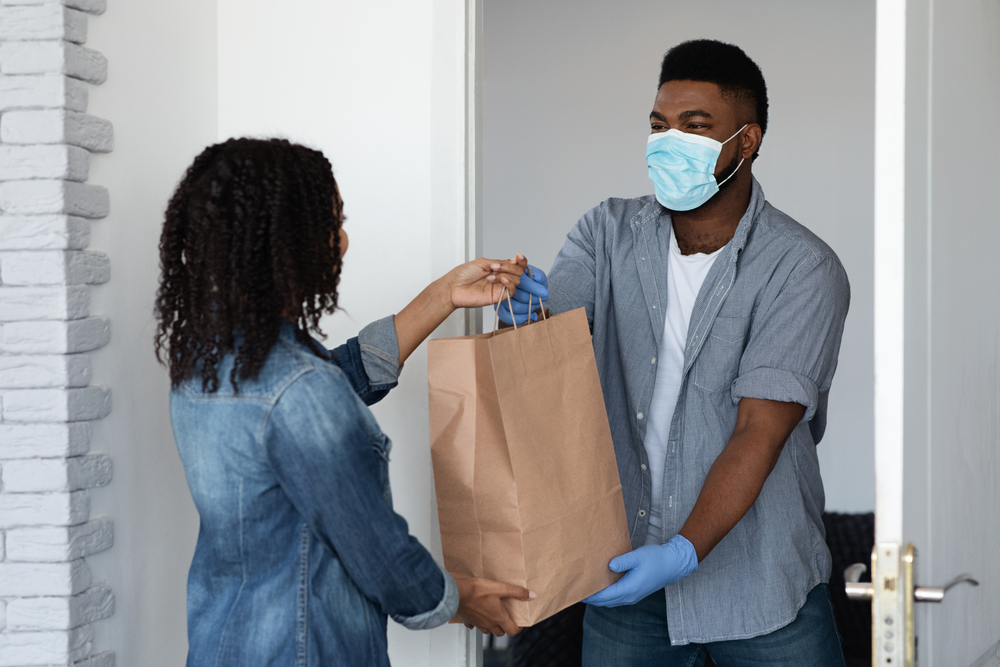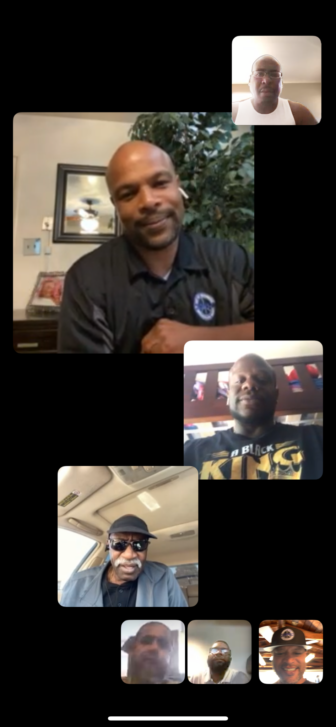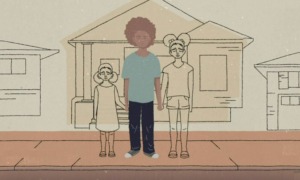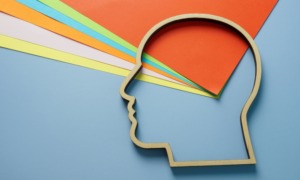
Prostock-studio/Shutterstock
.
The Office of Neighborhood Safety (ONS) in Richmond, Calif., is a non-law enforcement governmental agency whose sole purpose is to reduce gun violence using street outreach as a primary vehicle to deliver optimal and sustained gun violence reduction outcomes.
As with most things in this country due to COVID-19, our work looks a little different. We are wearing masks, gloves and doing our part to social distance during outreach. These aren’t ideal conditions in an occupation that is based on building trustworthy relationships with skeptical clients. Yet, as always in this line of work, one must lead by example.
Many articles of late have described the essential role of professionals who facilitate gun violence prevention street outreach during these unprecedented times. We continue to remain on the front lines of violence interruption activities. We’re experiencing new situations like being called to mediate conflicts within homes where families are battling due to cabin fever because the apartment is overcrowded and tensions flare. We are delivering food, water and other necessary supplies where few dare to venture.

Top to bottom: Jason Green, James Houston, Vaughn Miles, Charles Muhammad; bottom, left to right: Sal Garcia, Joe McCoy, Sam Vaughn
Outreach workers have always been public health professionals who work in our toughest, most dangerous environments, but now we are using our status as trusted messengers to promote the seriousness of this virus and why it is important to follow the mandates of sheltering in place and social distancing. Also, dispelling misinformation about Black people and young people being immune to COVID-19. This work is critical to the health and well-being in urban America, which is even more evident due to our current situation. We are truly honored to be able to serve our communities in this way.
Our attention at the beginning of this pandemic was drawn to the many stories calling COVID-19 “the great equalizer,” considering this virus leaves no race, gender, religion or social class untouched. Yet as the weeks went on data showed that people of color and especially African Americans living in lower-income communities were suffering a much higher rate of infection and death.
This created very interesting conversations about why. We now know there were a number of reasons. National public health “experts” told us this was due to the social, racial, educational, economic, housing and health care inequalities, and that African Americans suffered from underlying health conditions at a much higher rate than other citizens. COVID-19 has gone from being the “great equalizer” to the great revealer.
We who work in neighborhoods most impacted by gun violence found these so-called revelations to be very interesting. We question what COVID-19 has actually revealed. That urban America has been the least of this country’s concerns, since forever? No, that can’t be it. As a nation, we‘ve known this to be reality since slavery through the civil rights movement. From fighting for our freedom in the Civil War or after fighting in Vietnam for “democratic principles” and being called a nigger upon your return and being discriminated against by the job market back “at home.”
At the very least, we’ve been in the know since the life-destroying Tuskegee experiments or the “war on drugs” that decimated Black communities. For sure, anyone who knows the history of this country without a doubt knows that it has not treated its people of color equally. So, what is this great revelation everyone is talking about?
It’s always scary for kids in dangerous places
In our work, we’ve been trying to wrap our heads around this question for a while. We’ve determined that both statements are true — COVID-19 equalizes and reveals. What this pandemic has done to this country is horrific, and it is sad to watch the news and see the death toll rise daily. To see a line of cars more than a mile long at the food bank, filled with people worrying about whether or not there will still be something left when they get to the front. Watching the elderly lie in convalescent homes alone because they can’t have visitors or, even worse, being left alone because staff weren’t getting the proper PPE, and no one showed up for work.
To hear the stories of people who’ve lost loved ones and didn’t get to say their final goodbyes because of lockdown protocols. One can’t imagine the sheer fear of someone in their last moments on this Earth possibly having to settle for being comforted by a complete stranger, instead of holding the hand of their spouse or children. This is truly a scary time to be alive, a time of fear, uncertainty, despair and maybe even hopelessness.
And then, all of a sudden we got it …
It has also been a scary time to live for the young people across this country who are most impacted by gun violence for their entire lives. They don’t plan for a future because they don’t see a tomorrow. Not everyone in this nation is equal today in this regard. Many young people we work with don’t know what they are going to do for food next week or how their rent will get paid. They don’t know if they will even be alive tomorrow.
No one should live with these types of uncertainties on a daily basis. Yes, COVID-19 has many in its sights who’ve never thought or lived this way. But many in our nation have lived this way their entire lives and so have their ancestors. Although there have been policies to try to mitigate these disparities, they have never been enough and are often attacked because of who would receive the remedy.
So now with COVID-19, a spotlight has exposed government’s great responsibility to care for us when we cannot care for ourselves and to create the conditions that enhance the opportunity for all to become self-sufficient. But not just because of this pandemic, no. But because that is what a just society does. COVID-19 is new and devastating, but it too shall pass.
And yes, many Americans will agree that the total loss of life could have been avoided. The epidemic of gun violence, however, is an age-old problem in this country, and until we deal with it with the same ferocity that we have for COVID-19, it will continue to be what it has always been — an ongoing nightmare of death, harm, trauma and hopelessness.
As this nation slowly gets back to normalcy and people go back to work, school, church and Sunday barbecues, will the majority of us still be OK with some of us continuing to live in a hell like the one we all just escaped? We’re reminded of a question anti-racism educator Jane Elliott asked a large group of white people in an auditorium:
“If you are OK with being treated the way Black people are treated in this country, please raise your hand.” No hands were raised.
We ask you now, are you OK with this country going back to a normal that leaves a part of it behind again? Please raise your hand. If not, please do something about it. Support community organizations on the front lines fighting this epidemic of gun violence and demand that more such efforts are created to do so. Let’s take care of each other.
Sam Vaughn, program manager of the Richmond, Calif., Office of Neighborhood Safety and his team of neighborhood change agents — James Houston, Sal Garcia, Joe McCoy, Charles Muhammad, Jason Green and Von Miles — are co-authors of this column.





























